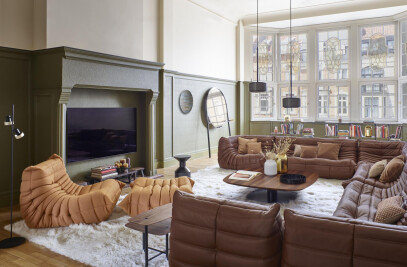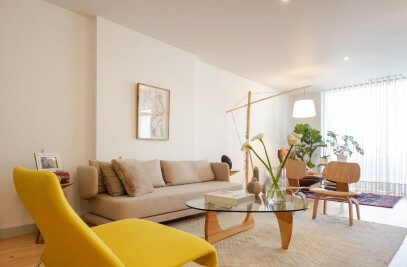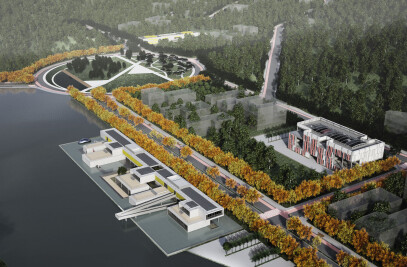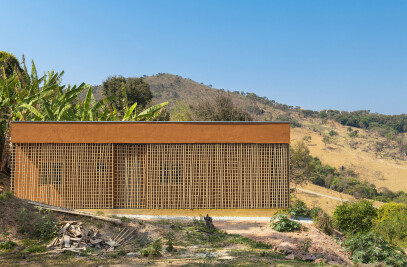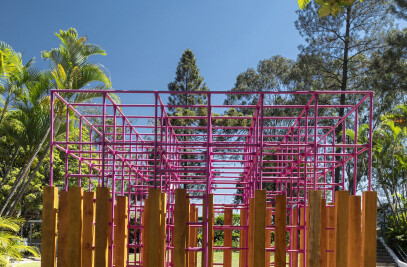The House
The Cerrado House was built at the foothills of the Sierra da Moeda, a mountain range in the state of Minas Gerais. The three-bedroom house has a rooftop pool and a wide staircase that leads to the rooftop terrace. The rooms are right under the swimming pool and have views of the sierra, the Cerrado and its twisted trees. Louvers on the northern and western faces protect against the inclement sun.
The play between function and form here is spontaneous and undogmatic: the ramps and stairs of the swimming pool are stamped onto the façades and shape the internal space. The employment of the programmatic source is made directly manifest: it is a strategy that explores the programme/form relationship as an inevitable correspondence.
Performance Description
Seeking the plasticity of basic architectural elements, the project also exalts this underestimated and threatened biome: the Cerrado. There is no landscape design: the house sits on natural terrain, whose immensity and vistas are best seen from the pool terrace.
The Context
The Cerrado is one of the country’s seven biomes and covers an area of 1.5 million km². It holds about a third of all Brazilian biodiversity, 5% of the world’s flora and fauna, and is home to the headwaters of the three largest hydrographic basins in the country (Amazon, São Francisco, and Paraná/Paraguay). It has a unique flora and stands out for its generously-spaced trees and low-slung brushwood, blending into a South-American variation on the African savannah and the European steppe. Given its ecological, geopolitical and cultural specificities, the Cerrado is considered the biome of national integration.
The soils of the Cerrado were once regarded as too acidic to farm. But since agronomists began applying industrial quantities of lime in the 1980s, these soils have been transformed. The Cerrado now produces 70% of Brazil’s agricultural output.
In recent years, the rate of ecological destruction of the Cerrado has been twice that of the Amazon, and while the majority of the Amazon rainforest still survives, more than 60% of the Cerrado’s former 200 million hectares have disappeared under the plough, and most of that within the last two decades alone. It has been a black hole for conservation: only 2% of the ecosystem is protected. However, Brazilian agriculturalists and ministers still talk as if it had no conservation value at all.



























